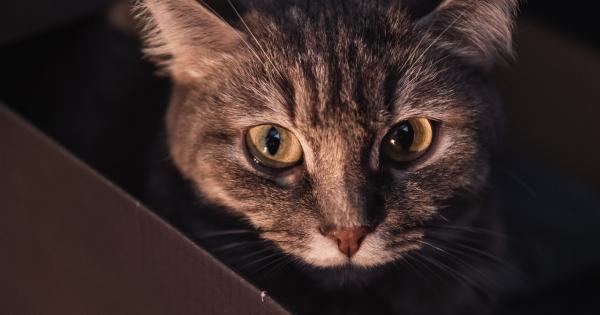As much as we love our pets, they are known to disrupt our sleep and disturb our beauty rest. It is estimated that around 67% of pet owners experience some sort of sleep disturbance caused by their furry friends.
While pets can bring joy to our lives, they can also impact our sleep quality and affect our overall health.
Why do pets affect our sleep?
There are several reasons why pets can disturb our sleep patterns:.
: 1. Snoring
Just like humans, pets can snore. Whether they have a respiratory problem or are simply sleeping in an awkward position, pet snoring can be loud and disruptive. This is especially true if your pet sleeps in the same room as you, or worse, on your bed.
: 2. Restlessness
Pets are naturally active, and this can translate to restlessness at night. If they spend their day napping and playing, they may become hyper and active at night when you are trying to sleep.
This can lead to pacing, whining, and barking which can disturb your sleep.
: 3. Need for attention
Pets love attention, and if they feel neglected, they may try to wake you up at night to play or cuddle. This can be especially true if they are a new addition to your household or have been left alone for an extended period.
They may also need to go outside to use the bathroom, which can further disrupt your sleep.
: 4. Allergies
If you have pet allergies, you may experience coughing, sneezing, and wheezing during the night. Even if you are not allergic to your pet, their dander, saliva, and urine can trigger allergies and impact your sleep quality.
How can you improve your sleep with pets?
As a pet owner, you want to balance the love you have for your furry friends with your need for sleep. Here are some tips to improve your sleep quality:.
: 1. Create a comfortable sleeping environment
Provide your pet with a comfortable place to sleep, whether it’s a pet bed in the same room or a designated space outside of your bedroom. This can help reduce restlessness and minimize pet hair and dander from entering your bed.
: 2. Stick to a regular sleep schedule
While pets can be unpredictable, having a set sleep schedule can help signal to your furry friend that it’s time to wind down. This can help reduce hyperactivity and restlessness at night.
: 3. Train your pet to sleep independently
Teach your pet to feel comfortable sleeping on their own. This can be done through crate training or gradually introducing them to their sleeping space. This can help reduce the need for attention at night and minimize the impact of their restlessness.
: 4. Practice good hygiene
Bathe your pet regularly and keep them groomed to minimize the amount of pet hair and dander in your home. Use a vacuum or air purifier to clean your space and reduce allergens.
: 5. Talk to your vet
If your pet is experiencing health issues or sleep disturbances, talk to your veterinarian. They may be able to provide solutions or medications to help improve their sleep.
: Final thoughts
Having a pet can bring joy and companionship to your life, but it’s important to recognize the impact they can have on your sleep quality.
By creating a comfortable sleeping environment, establishing a regular sleep schedule, training your pet to sleep independently, practicing good hygiene, and talking to your vet, you can maintain a healthy relationship with your pet while improving your sleep quality.































